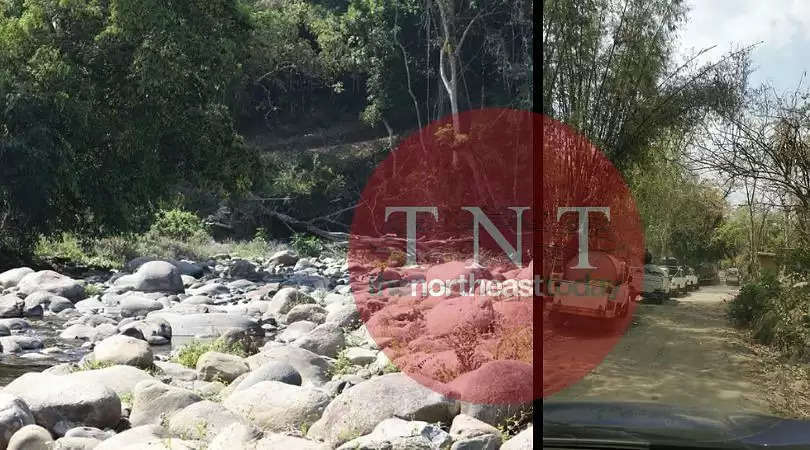Meghalaya: Water scarcity hits Garo Hills

TURA | March 31, 2019:
Meghalaya's Garo Hills region is getting drier and drier by the day to the extent that a 2000 tanker of water costs Rs 1000 causing much inconvenience and problem for the common man.
Tura, the headquarters of West Garo Hills, with its small rivulets as well as the Ganol River to cater to its water needs, is literally in the throes of a drought. Thanks to the lack of sensitivity to nature and wholesome depletion of forest cover!
It has now become a common sight for the water tankers to be plying throughout the entire town 24X7 trying to cater to the need of the people and all this not even for drinking water – just enough to wash clothes and utensils.
"It is a sad sight indeed. There was a time when we couldn't imagine ever buying water. Our rivers, lakes and ground water are all drying up. Yet despite us seeing this change happening with our very eyes, we still pollute, cut trees like they will last forever. It's time to wake up," said Brendan D'Brass, a resident of Tura (Photo Courtesy – Brendan).
"Imagine there is no water even in the lower reaches of the Nokrek Peak (Akhonggre area), something we never could have imagined. Everything has just dried up," said an auto driver resident of Akhonggre.
The situation elsewhere is not any different. Long lines of people have been seen in almost all the natural watering holes in the town while PHE water tankers have been making point supplies around the town. Alarmingly, the PHE of EGH has even issued a circular pointing to the lack of water due to depletion and a subsequent cut in supply.
In fact the deputy commissioners of both East and West Garo Hills, who have been making wide trips across the districts, have also been surprised by the lack of water even at sources.
The DC of WGH, Ram Singh after a recent visit to the Ganol stream asked as to where the water had gone while trying to push for ensuring afforestation in the region. DC EGH, Swapnil Tembe also posted a photo of a recently destroyed forest area to make way for jhumming, warning that such large scale destruction can never be good for water.
To add to all the problems, the increasing cases of timber smuggling have added greater alarm to the situation.
"Just planting trees will not do. We should stop cutting mature trees as well. It takes 20-25 years for a forest to rebuild and give the same quality of air so to destroy forests this way is going to send us on the path to destruction," said AM Marak, a member of an environmental NGO.
Alarmingly prime forest lands have been razed down to make way for plantations of rubber or betel nut. Further the traditional practice of jhumming has also created a situation which will only get worse. And of course there is the illegal timber trade.
"In another 10 years I think, we will be able to compete with the likes of Rajasthan for being a dry zone. Despite the huge amount of rainfall we receive, the dry months are no different only because of water depletion due to massive deforestation. Unless we wake up, there will be nothing much to drink in Garo Hills," added Marak.

















